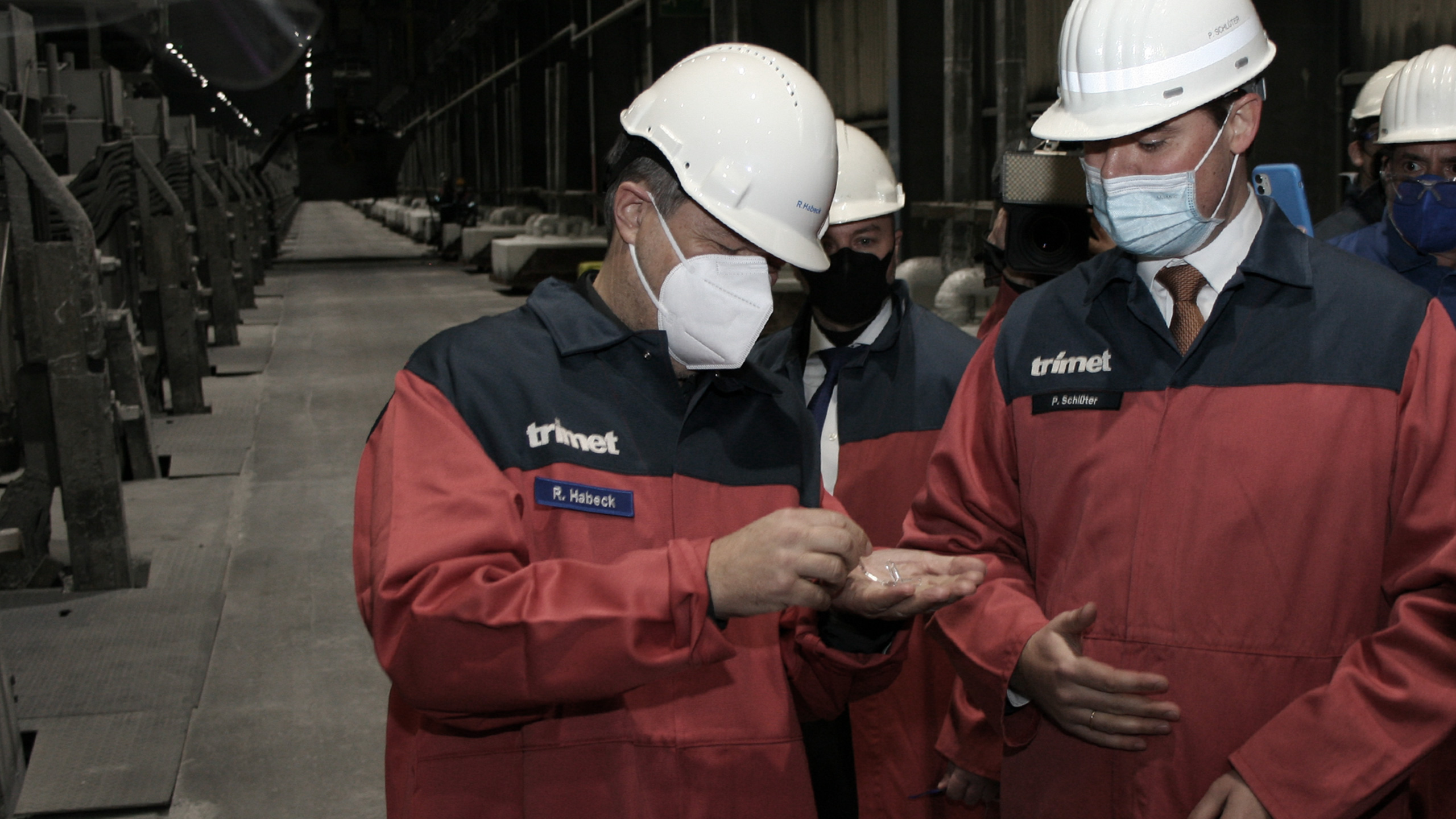During a tour of the aluminium smelter, the minister learned more about the production of aluminium and discussed with TRIMET CEO and owner Philipp Schlüter and Plant Manager Dr. Jörg Prepeneit the company’s measures for introducing CO2-free production and challenges posed by the future energy supply.
“We are pursuing the goal of producing aluminium in a climate-neutral way by 2045, and to this end we are developing a new cell technology that does not produce CO2 emissions,” says Philipp Schlüter, Chairman of the Executive Board of TRIMET Aluminium SE. “However, the largest part of our CO2 footprint is caused by the electricity used in the production process. Therefore, we can only achieve our goal if we obtain green electricity at internationally competitive prices.”
Federal Minister Dr. Robert Habeck: “Producing aluminium in a climate-neutral way is a major task and not an easy journey. TRIMET is resolutely pursuing this path and demonstrating how transformation can succeed and what course needs to be set. One thing is clear. We need one thing above all else on this path: significantly more renewable electricity. To achieve this, we need to step up the pace of renewable energy expansion. We will present a proposal for a comprehensive reform of the Renewable Energy Sources Act in a first major legislative package by Easter.”
Around 380 employees work at the TRIMET aluminium smelter in Hamburg. They produce around 135,000 tons of primary aluminium annually, which is further processed in the automotive and packaging industries and in plant construction, among other sectors. The family-owned company is continuously investing in the technical modernization of its production plants and their focus on resource conservation and climate protection. For example, TRIMET is currently testing a process in which the electrolysis furnaces can flexibly adapt to fluctuating amounts of electricity from wind and solar power plants.
